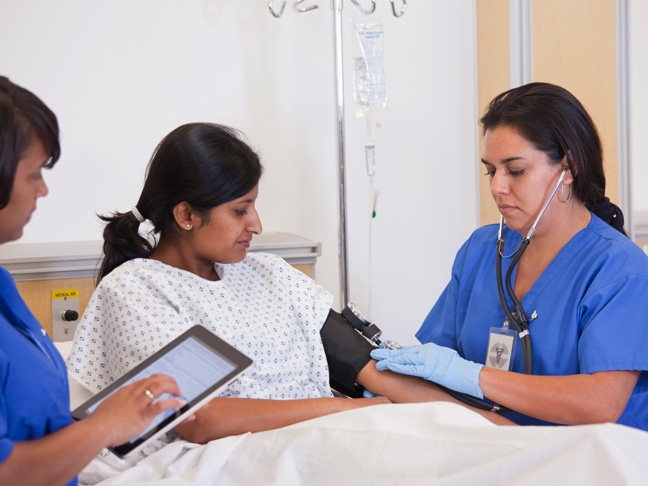Pregnancy-induced hypertension, also called preeclampsia or toxemia, is a pregnancy complication characterized by high blood pressure, swelling due to fluid retention, and protein in the urine. As many as 1 in 12 women may be affected, and of those 5.7 percent will develop postpartum preeclampsia, a rare form of the disease. It’s a progressive disorder, according to Eleni Tsigas, executive director of the Preeclampsia Foundation.
“If you are not treating it and arresting it, it gets worse and worse,” says Tsigas.
First-time moms are at higher risk, as are women over 35 and those who have high blood pressure or renal disease. Symptoms can include weight gain, abdominal pain, severe headaches, a change in reflexes, spots before your eyes, reduced output of urine or no urine, blood in the urine, dizziness, or excessive vomiting and nausea.
A task force at the foundation has successfully urged many states to require hospitals to provide new moms with verbal and written information about postpartum symptoms prior to discharge. Tsigas warns that if a woman is a first-time mom all of the symptoms are brand new, so she might “assume it is just part of childbirth and ignore them.”
These days, 38-year old Sarah Hughes is a volunteer for the Preeclampsia Foundation and works to raise awareness of this life-threatening condition. Sarah was shocked to learn that the medical community doesn’t routinely inform new moms of the symptoms of post-partum preeclampsia before they leave the hospital.
Photo: Getty




